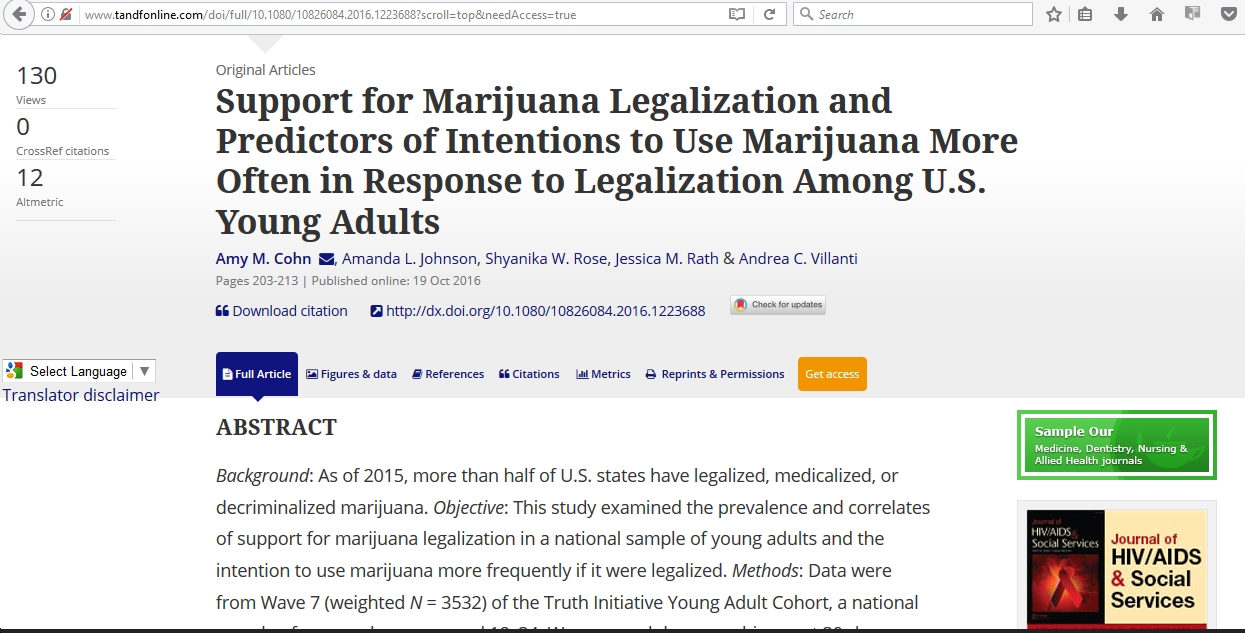Pages 203-213 | Published online: 19 Oct 2016
Background: As of 2015, more than half of U.S. states have legalized, medicalized, or decriminalized marijuana. Objective: This study examined the prevalence and correlates of support for marijuana legalization in a national sample of young adults and the intention to use marijuana more frequently if it were legalized. Methods: Data were from Wave 7 (weighted N = 3532) of the Truth Initiative Young Adult Cohort, a national sample of men and women aged 18–34. We assessed demographics, past 30-day substance (alcohol, tobacco, marijuana, other drug use), depression and anxiety, social smoking, marijuana harm perceptions (relative to cigarettes), and state-level marijuana policies as correlates of support for marijuana legalization and intentions to use marijuana more often if it were legalized. Multivariable models of correlates of support for legalization and intentions to use marijuana were conducted separately for the full sample and for nonmarijuana users. Results: Weighted estimates showed that 39% of the full sample and 9% of nonmarijuana users supported marijuana legalization. Multivariable models showed that lower marijuana harm perceptions and lifetime and past 30-day tobacco use were common predictors of support for marijuana legalization and intentions to use marijuana among non-users of marijuana. Conclusions/Importance: Over a third of the sample supported marijuana legalization. Tobacco use and perceptions that marijuana is less harmful than cigarettes were robust risk correlates of support for marijuana legalization and intentions to use more frequently among nonusers. Public health campaigns should target these factors to deter marijuana-related harm in susceptible young adults.
